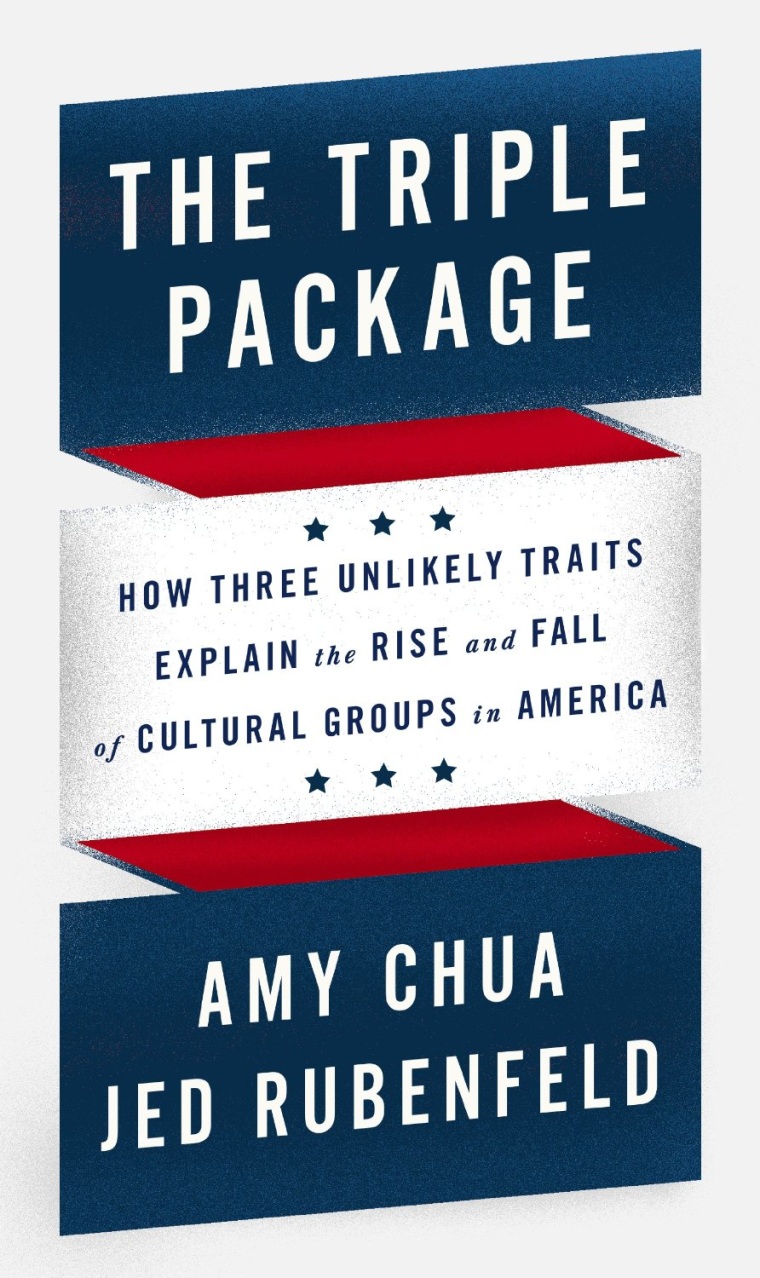In 2011, Amy Chua's "Battle Hymn of the Tiger Mother" struck a chord with its candid discussion about the relationship between culture and parenting. With "The Triple Package," Chua and husband Jed Rubenfeld are again courting controversy with a book exploring the traits of certain ethnic groups and their predisposition for success. Here's an excerpt.
INTRODUCTION

It is one of humanity’s enduring mysteries why some individuals rise from unpromising origins to great heights, when so many others, facing similar obstacles and with seemingly similar capabilities, don’t rise at all.
This book is about that age-old question. We wrote it hoping that readers might come away with a better understanding of the world we live in—a world in which certain individuals and groups do strikingly better than others in terms of wealth, position, and other conventional measures of success.
The paradoxical premise of this book is that successful people tend to feel simultaneously inadequate and superior. Certain groups tend to make their members feel this way more than others; groups that do so are disproportionately successful. This unlikely combination of qualities is part of a potent cultural package that generates drive: a need to prove oneself that makes people systematically sacrifice present gratification in pursuit of future attainment. Groups that instill this kind of drive in their members have a special advantage in America, because contemporary American culture teaches a contrary message—a message of self-acceptance and living in the moment.
This book brings together two very different bodies of work and expertise. One of the two authors has written for almost twenty years about successful ethnic minorities all over the world, from Southeast Asia to Africa to the former Soviet Union. The other has written extensively on how the desire to live in the present has come increasingly to dominate modern Western culture, especially in America, undermining the country’s ability to live for the future. America was not always this way; in fact, as we’ll discuss, the United States was born a Triple Package country.
That certain groups do much better in America than others— as measured by income, occupational status, test scores, and so on—is difficult to talk about. In large part this is because the topic feels racially charged. The irony is that the facts actually debunk racial stereotypes. There are black and Hispanic subgroups in the United States far outperforming many white and Asian subgroups. Moreover, there’s a demonstrable arc to group success—in immigrant groups, it typically dissipates by the third generation—puncturing the notion of innate group differences and undermining the whole concept of “model minorities.”
This book offers a new way to look at success—its hidden spurs, its inner dynamics, its costs. These costs can be high, even crippling. But when properly understood and harnessed, the package of three cultural traits described in this book becomes a source of empowerment unconfined by any particular definition of success. As we’ll show, the Triple Package can be a ladder to accomplishment of any kind, including that which is measured not by gain to oneself, but by service to others.
Ultimately, the Triple Package is accessible to anyone. It’s a set of values and beliefs, habits and practices, that individuals from any background can make a part of their lives or their children’s lives, enabling them to pursue success as they define it.
Reprinted by arrangement with The Penguin Press, a member of Penguin Group (USA) LLC, A Penguin Random House Company. Copyright © Amy Chua and Jed Rubenfeld, 2014.